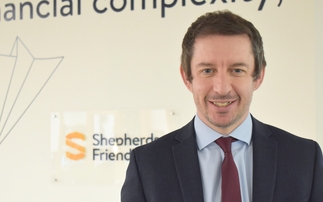There is nowhere more ‘front line' than a claims department, and recent years have seen great improvements. Craig Colton expects there will be more to come.
Claims handlers are the individuals who help people who have recently lost their loved ones; they speak to customers who have been diagnosed with a serious (sometimes terminal) illness; they listen to their concerns and ultimately tell them whether they can claim under their policies.
Claims handlers speak to our customers at critical points in their lives and help them through some of the toughest times.
Fortunately, as an industry we're ‘getting better' at paying claims. If we look back over the past seven years, ABI figures show that insurers overall have moved from paying 84% of critical illness claims in 2007, to 91% now.
At the risk of blowing our own trumpets, in 2012 Aviva protection customers and their families received more than £475m through claims on life insurance, critical illness cover and individual income protection policies. This equates to more than £1.3m a day, or £902 per minute. This is great news for consumer, advisers and the industry as a whole.
Figures such as these demonstrate that insurers really do pay claims, fulfilling the promise we made when the cover was taken out. We are continually looking at ways to make our products better for customers so we're not in the awful position of having to turn down a claim - for example, if a person has had a form of cancer that isn't covered or where the severity of the condition being claimed for doesn't meet the criteria.
Education
But there is still more to be done, and much of this ‘more' is around consumer education.
It makes everyone in the industry's heart sink when they read or hear about the case of a customer whose protection claim has been turned down. These types of stories are incredibly emotive and there is every sympathy for the family whose lives have been affected by a terrible disease or the death of a loved one. But no insurer turns down a claim without good reason.
Either a claim has been declined because the customer provided incomplete or inaccurate information on their application (which often means that they would not have been offered cover had the insurance company known this information), or they have tried to make a claim outside the policy's terms and conditions: for example, for an illness that isn't covered.
In this situation, the customer is usually very angry and upset, and is keen to point out to others the importance of reading their policies and understanding what they are covered for.
Ironically, this is exactly the point that insurers would also want to make. We desperately want people to understand what cover they have so that we're never in a position of having to turn down a claim.
It is a shame that this point is sometimes made in unfortunate circumstances.
So what should insurers do in these cases? Should we overturn a declined claim if the customer was a heavy drinker but claimed to be more or less tee-total on their application form? Or if they answered ‘no' to questions when clearly their answer should have been ‘yes'.
People may be surprised to read that no declined claim is taken lightly. Medical conditions aren't always an exact science and, where we can, we often give the customer the benefit of the doubt.
At Aviva, and I'm sure other insurers do the same, we have a claims committee to challenge ourselves with more complex claims to ensure that we consider all the relevant information and not make technical decisions based solely on fulfilling a defined criteria.
Of course, this does not mean insurers pay every claim. If we did, premiums would rise so much that cover would become unaffordable to all but the affluent few.
But we consider every case on an individual basis. We have a duty of care to customers, and we are here to support them if it is right and fair to all policyholders to do so.
Providers always stand in customers' shoes, and we don't hide behind technicalities: we make decisions that we stand by today and in the future.
As one of our claims managers put it: if we can explain why we have made a particular decision in a way the man in the street would understand, we can be confident the decision is the right one.
Paperless claims process
We are also looking at ways in which we can make the claims process easier and quicker for our customers.
Paperless process have enabled insurers to pay some death claims within 24 hours. Following this, we at Aviva are piloting innovative ways to introduce more tailored journeys for CI customers, starting with cancer claims, the most common reason for claim. The aim of this is to alleviate the financial worries of our customers by paying claims as quickly as we can.
Form-filling can be a pain at the best of times, so the industry has introduced claims websites and telephone claims services designed to make the claims journey as simple and hassle-free as possible for the customer.
Both routes give claimants the opportunity to submit their claim at a time and place that's convenient to them. The telephone claims process mean customers claims can be dealt with in one call rather than two, and days can be saved because providers have not asked them to complete a paper form. Instead of a ‘call back', the customer's call is put straight through to an assessor, because it's now that is convenient to the customer.
Making a claim is something no one ever wants to do, particularly when we're talking about life or critical illness cover. But if we can help to educate people about their cover, and make the process easier if they do need to make a claim, we can help to provide that all-important financial comfort when it matters most.
Craig Colton is protection director at Aviva











